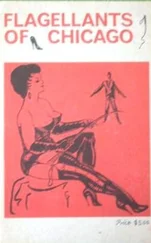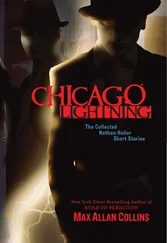“Why?”
“All the students I met refused to sign.”
“Did you expect to convince them easily?”
“They treated me like a madman.”
“That’s natural.”
“Why?”
“All the students are at the government’s mercy. If they sign this statement, they’ll actually be penalized.”
“But I’m a student like them.”
“You’re an exception. Besides, you don’t work at the university, hence there’s nothing for you to lose.”
“If everyone thought of it this way, we wouldn’t get anything done.”
“What a dreamer!”
“I am not a dreamer, but I find their position to be selfish and despicable. People like that are the reason we’re where we are. It is from them that the regime chooses its ministers and experts, who turn a blind eye to the truth and who lie and curry favor with the president to keep their posts.”
“Don’t give up,” Dr. Doss said.
“I no longer see the point in what we are doing.”
He smiled and patted me on the shoulder, then took out of his pocket a folded paper. When I looked at it, I recognized it as a copy of the statement with several signatures. He laughed loudly and said, “You have to admit I beat you!”
I began to read the names; they were both Coptic and Muslim names. He went on, not trying to hide how happy he was, “At the beginning I was not enthusiastic about the idea of the statement but afterward I found it to be an excellent idea. And most of those I met have responded well. We will succeed, Nagi, but we have to look in the right places. Don’t waste your time with the students. I’ve brought you a list of Egyptian immigrants in Chicago, with their addresses and telephone numbers. Let’s split the list and contact them.”
During the following days, as soon as I came back from school, I’d work the phone, ringing up Egyptians. I introduced myself as a student who wanted to start a new association of Egyptians, and then I’d ask the person for an appointment to see them. The reactions differed from one person to the next: some told me frankly that they had severed their ties to Egypt and couldn’t care less what happened there. But many of them were quite enthusiastic. I visited several neighborhoods in Chicago. Most Egyptians I met were upset at the conditions in Egypt. At the end of my presentation, I’d ask each of them a direct question, “Do you want to do something for your country?”
I could guess the answer from the way they looked at me: an indifferent or awkward look meant no signature; a friendly look meant that they would sign. By 4:00 p. m. on the following Sunday, when I took the Blue Line going back to the dorm, I had obtained ten signatures in addition to the twenty-nine that Karam got, a total of thirty-nine signatures, in addition to five persons who had asked for time to think about it. That was an achievement beyond our expectations in the short period since we started. We still had a whole month to go. If we continued at this rate, we would get hundreds of signatures. I remembered an article I had read a few years ago about something mysterious in the makeup of Egyptians that made it difficult to predict their reactions. The article asserted that revolution in Egypt always began unexpectedly, that a ferment went on beneath the Egyptians’ calm surface, which made them, at the very moment they seemed to give in to oppression, erupt suddenly in revolution. That theory seemed to be valid. I was overcome with a sense of pride and joy. There I was, doing something for my compatriots who were being beaten up, dragged, and violated on the streets of Cairo, who were detained and tortured in horrific ways just because they expressed their opinions. Soon we were going to embarrass the Egyptian regime before the whole world. In front of the cameras and the international press corps, a person, speaking for the Egyptians in Chicago, would stand up and demand that the president abdicate and that democracy be adopted. There wouldn’t be a more important news item in all the media.
As I walked through the entrance to the dorm, I caught a glimpse of Henry, Wendy’s former boyfriend, sitting at his desk. He shot a disdainful look at me, but I ignored him. I walked slowly so he’d know I couldn’t care less about him. All of a sudden I felt I was strong; I no longer feared him. He could go to hell. From now on, if he oversteps the bounds or utters an insulting word, I’ll teach him a lesson he will not forget.
I got out of the elevator and turned the key in the door of the apartment and as soon as I stepped inside, I noticed something strange; the lights were on, even though I remembered well that I had turned them off before leaving. I went in slowly and cautiously. Suddenly I saw a man sitting in the chair in the living room. I froze, shocked, then shouted at the top of my voice, “Who are you? And how did you get in here?”
He got up steadily and advanced toward me. He smiled and extended his hand to shake mine, saying, “Good evening, Nagi. I am sorry I came this way, but it is very important that I speak to you. My name is Safwat Shakir, counselor at the Egyptian embassy in Washington.”
That morning, Chris gave in to an inner call that she did not understand. She put on conservative clothes: a long-sleeved dark green suit and dark sunglasses. She looked like an undercover officer in a police drama. She found the store a few steps from the entrance to the train station, exactly as she had read in the paper. The glass facade was covered with a black curtain and there was a neon sign that read maxim’s for tools of delight. She stopped hesitantly before the door for a few moments, then the door opened and a twenty-something woman appeared. She greeted her with a friendly smile and invited her in. Chris said to herself that it was only natural at a place like that to monitor the entrance with secret cameras. She looked around and immediately felt disoriented and somewhat queasy. She saw dozens of sex toys for all purposes: for heterosexual men and women, gays, and lesbians. In the back was a screen showing an X-rated movie. The saleswoman looked strange, smiling politely and speaking calmly while moans of pleasure came loudly from the movie playing behind her.
“How can I help you?”
“I’d like to buy a vibrator,” Chris blurted out in a tone she tried to make sound neutral and nonchalant. But her voice came out loud, which increased her embarrassment. The saleswoman asked her simply, “What kind of vibrator do you want?”
Chris went closer to the saleswoman and whispered in a shaking voice, “Actually, I’d be using a vibrator for the first time and I don’t know what kind to choose.”
The saleswoman’s smile broadened and she said, “If you want counseling from our sex expert, that will cost you fifty dollars a session.”
Chris grew more confused; the woman went on, “If you want basic information on vibrators, one session would be enough. But if you have sexual problems, or if you want to improve your performance in bed, you’d need several sessions. The expert will be able to tell you how many sessions you’ll need after you meet with her.”
“I am only interested in the vibrator.”
“One session then: fifty dollars.”
She took out a fifty-dollar bill, which the saleswoman took and put in the drawer, then motioned to Chris to follow her. She led her through a long corridor until they got to a door with the sign JANE DEHAN, LICENSED SEX EXPERT. The saleswoman entered, disappeared for a few moments, then said as she extended her hand in welcome, “This way, please.”
The expert, who was over fifty years old, with glasses, a white coat, and gray hair gathered in a bun at the back of her head, looked more like a dietitian employed by a television channel. After introductions and reserved pleasantries, the expert exhaled and said like someone who wanted to get to work, “Okay, Chris, what do you know about vibrators?”
Читать дальше
Конец ознакомительного отрывка
Купить книгу












